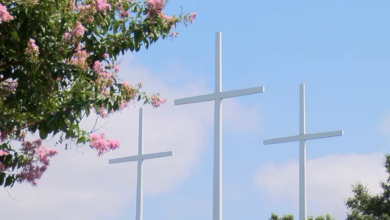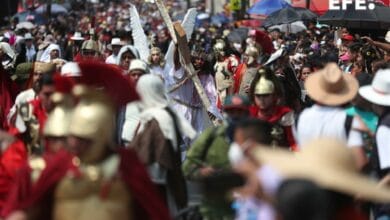Shia Muslims hold mourning processions in Taliban-ruled Afghanistan

Kabul, Aug 19 (EFE).- Shia Muslims held large mourning processions across Afghanistan Thursday, the first after the Taliban seized power, to mark the death of Prophet Muhammad’s grandson and his family in the battle of Karbala 1,400 years ago.
And for the first time, Taliban fighters carrying assault rifles guarded the processions in some areas in sharp contrast to the past several years, when Islamist groups would target the minority Shias on religious occasions.
At least 10 percent of Afghanistan’s nearly 33 million population are Shias.
Nearly 90 percent of these are ethnic Hazaras, who live predominantly in the central and western parts of the country and the capital Kabul, and who faced relentless persecution during the previous Taliban rule from 1996 to 2001.
Processions took place across the country, including in Kabul, Mazar-e-Sharif, and Herat, after Taliban leaders reportedly pledged cooperation and assured that they would not let anyone disrupt the proceedings.
There were no reports of security incidents related to the holy day. Some mourners were seen posing for photographs with the Taliban gunmen.
Mazar-e-Sharif, the fourth-largest city in northern Afghanistan, was drowned in emotional and religious fervor as roadways were decorated with black archways and huge banners hanging from poles.
Thousands of mourners gathered around the Roza Sharifa, a Shia holy shrine in the capital of the Balkh Province.
Devotees, wearing all-black, sang loud dirges and conducted mourning rituals amid sounds of flagellation with knives and chains.
Many were beating their chests, a Shia ritual, as the Taliban gunmen guarded them over.
Thousands of mourners gathered in Herat, the third-largest Afghan city, for a procession, according to a Twitter user, MH Hojjat, who also posted pictures from the gathering near a Shia mosque.
Muslims around the world observe Ashura Day on the 10th day of the first month of the Islamic calendar to commemorate the death of the Prophet’s grandson Hussain, at the hands of forces loyal to Yazid, a caliph from the Arab Omayyad dynasty in the 7th century AD.
Sunnis observe silent prayers and fast on the “day of gratitude for the greatest martyrdom,” but Shias take out bloody processions to mourn the death of Hussain and his 72 followers. EFE
bks-ssk/sc





